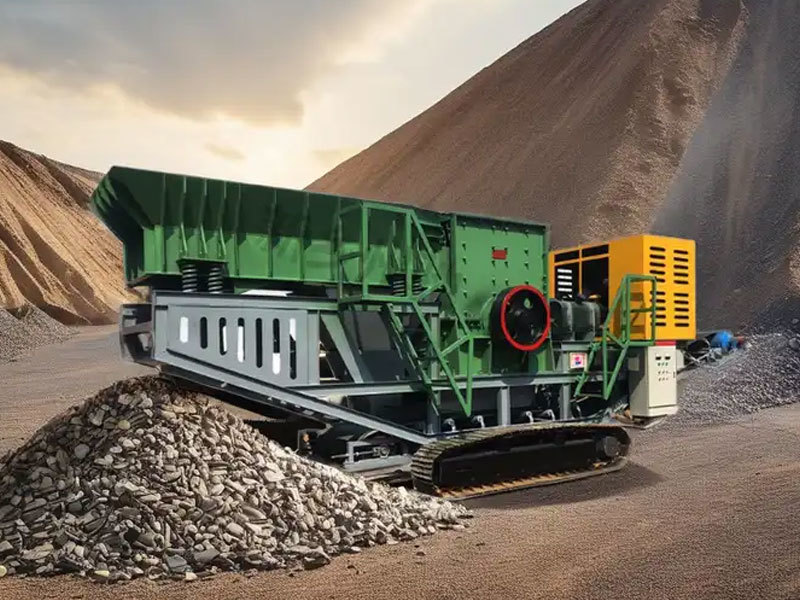Understanding Heavy Duty Crushing Plants: A Comprehensive Guide for Professionals
Sep 10,2025

Heavy duty crushing plants are integral components within the mining and construction industries, serving a pivotal role in the processing and reduction of various materials. These robust systems are designed to handle significant volumes of hard and abrasive materials, making them ideal for demanding environments. The primary function of heavy duty crushing plants is to break down large rocks and materials into manageable sizes, which can then be further processed or used in construction applications.
One of the key advantages of heavy duty crushing plants is their durability and reliability. Built with high-quality materials and advanced engineering, these machines can withstand the rigors of daily operations while maintaining performance efficiency. Professionals in the field appreciate their ability to process various types of materials, including granite, limestone, and concrete, making them versatile solutions for different projects.
Another critical aspect of heavy duty crushing plants is their adaptability to different processing requirements. Many modern crushing plants are equipped with multiple stages of crushing, which allows operators to achieve the desired material size through a series of crushing and screening processes. This flexibility is crucial for meeting specific project needs and optimizing production workflows.
In terms of operational efficiency, heavy duty crushing plants often feature advanced automation and control systems. These technologies enable real-time monitoring and adjustments to optimize performance, minimize waste, and enhance safety. Additionally, many plants incorporate eco-friendly practices, such as dust suppression and noise reduction measures, aligning operations with environmental standards and regulations.
Maintenance is another vital consideration for professionals working with heavy duty crushing plants. Regular inspections and servicing are necessary to ensure that machinery operates at peak performance and to extend its lifespan. Implementing a proactive maintenance strategy can prevent costly downtimes and enhance overall productivity.
Investing in heavy duty crushing plants also means considering the total cost of ownership. While these machines represent a significant investment, their long-term benefits—such as increased throughput, lower operational costs, and improved material quality—can deliver substantial returns over time.
In summary, heavy duty crushing plants are a cornerstone of the manufacturing and processing machinery industry. Their durability, versatility, and efficiency make them invaluable for professionals looking to optimize material processing in various applications. Understanding the intricacies of these machines can lead to improved decision-making and project outcomes, ensuring that operations run smoothly and effectively in any challenging environment.
One of the key advantages of heavy duty crushing plants is their durability and reliability. Built with high-quality materials and advanced engineering, these machines can withstand the rigors of daily operations while maintaining performance efficiency. Professionals in the field appreciate their ability to process various types of materials, including granite, limestone, and concrete, making them versatile solutions for different projects.
Another critical aspect of heavy duty crushing plants is their adaptability to different processing requirements. Many modern crushing plants are equipped with multiple stages of crushing, which allows operators to achieve the desired material size through a series of crushing and screening processes. This flexibility is crucial for meeting specific project needs and optimizing production workflows.
In terms of operational efficiency, heavy duty crushing plants often feature advanced automation and control systems. These technologies enable real-time monitoring and adjustments to optimize performance, minimize waste, and enhance safety. Additionally, many plants incorporate eco-friendly practices, such as dust suppression and noise reduction measures, aligning operations with environmental standards and regulations.
Maintenance is another vital consideration for professionals working with heavy duty crushing plants. Regular inspections and servicing are necessary to ensure that machinery operates at peak performance and to extend its lifespan. Implementing a proactive maintenance strategy can prevent costly downtimes and enhance overall productivity.
Investing in heavy duty crushing plants also means considering the total cost of ownership. While these machines represent a significant investment, their long-term benefits—such as increased throughput, lower operational costs, and improved material quality—can deliver substantial returns over time.
In summary, heavy duty crushing plants are a cornerstone of the manufacturing and processing machinery industry. Their durability, versatility, and efficiency make them invaluable for professionals looking to optimize material processing in various applications. Understanding the intricacies of these machines can lead to improved decision-making and project outcomes, ensuring that operations run smoothly and effectively in any challenging environment.
PREVIOUS:

